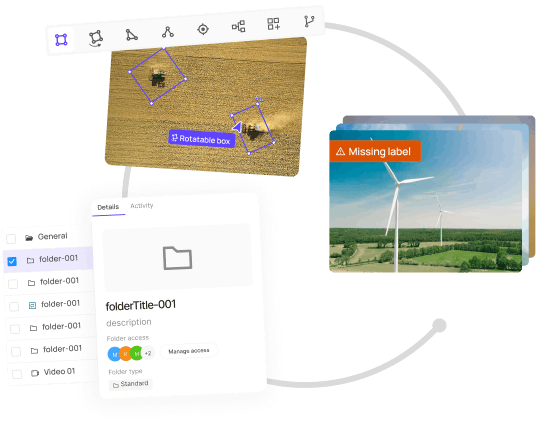Epochs
Encord Computer Vision Glossary
An epoch in machine learning refers to a single pass through the entire dataset during training. For example, if a dataset consists of 1000 samples and a model is trained using a batch size of 100, then it will take 10 epochs to complete one pass through the entire dataset.
During each epoch, the model is presented with a batch of data and makes predictions based on its current set of weights and biases. The model then compares its predictions to the true labels and calculates the error. This error is then used to update the model's weights and biases in an effort to improve its performance.
The number of training epochs a model receives can greatly impact its performance. A model may not have had enough time to learn and may perform poorly if it is taught for a short enough period of time (epochs). On the other hand, if a model is trained for an excessive amount of epochs, it could start to overfit the training set of data and struggle with untried data.
Therefore, a crucial step in machine learning is determining the ideal number of epochs for a particular model and dataset. This can be accomplished by employing approaches like early stopping, which involves interrupting the training procedure as soon as the model's performance on a validation set begins to deteriorate.

The number of training epochs a model receives can greatly impact how well it performs. A model may not have had enough time to learn and may perform poorly if it is taught for a short enough period of time (epochs). On the other hand, if a model is trained for an excessive amount of epochs, it could start to overfit the training set of data and struggle with untried data.
Therefore, a crucial step in machine learning is determining the ideal number of epochs for a particular model and dataset. This can be accomplished by employing approaches like early stopping, which involves interrupting the training procedure as soon as the model's performance on a validation set begins to deteriorate.